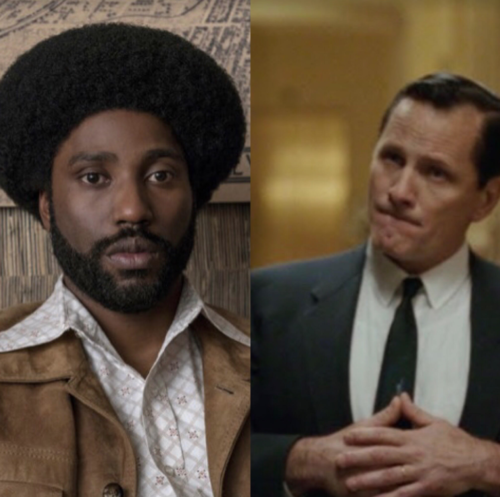While it’s just another normal year when the Academy has both disappointed and opted to revert to its usual pattern of falling for a movie that promotes a schlock-ridden idea of racism and how to “combat it” (see also: Crash and The Help), for some reason, one really did have high hopes in 2019 for a bit of a deviation. Particularly after the extreme backlash against Green Book as a result of its very white maleness in terms of the minds behind the project. For starters, its director, Peter Farrelly, is more well-known for birthing into the world such gross-out (and often offensive to everyone except plump Caucasians with a chode) comedies as Shallow Hal and Me, Myself and Irene (sure he and his brother, Bobby, had Dumb and Dumber and There’s Something About Mary in their heyday but it’s all been obscured by the bad now).
As if that wasn’t tone deaf enough, the script’s writer (who also somehow won the award for Best Original Screenplay, in conjunction with Brian Currie and Peter Farrelly), Nick Vallelonga (son to Frank Vallelonga, the lead character in the film played by Mortensen), had an unfortunate old tweet dredged up from 2015 in which he atted Donald Trump to say, “100% correct. Muslims in Jersey City cheering when towers went down. I saw it, as you did, possibly on local CBS news.” To not only side with the most blatant emblem of twenty-first century hate and cast aspersions on Muslims as a writer of a film doing its best to promote Hollywood ideals of how to tackle racism doesn’t quite work for the inevitably self-congratulatory nature of white men who feel they should be thanked for addressing it at all. And then there is the fact that one of the film’s stars, Mahershala Ali, is Muslim. But what is one to expect from a project that includes use of the “N” word from a blanco during one of its first Q&A promotions at the Arclight in Hollywood? Though we’re supposed to gain some sort of insight into “interracial friendships” (but then black people and Italian people are always lumped together–even in Spike Lee movies–aren’t they? Which is somewhat ironic considering how racist Italians are) at one of the peaks of discrimination toward blacks in America’s Deep South (and in pretty much any geographical location), all Green Book seems to do is lend the usual white savior quality to its “protagonist,” Tony Lip (because yes, why wouldn’t you get Danish-American Mortensen to play an Italian-American?).
In its attempt to stay relevant in a cinematic climate that no longer abides all vanilla tones and opinions, the Academy selected the very embodiment of what figuratively and literally white-washing a black story means (and the Shirley family would most assuredly tend to agree). At the same time, Spike Lee’s Kanye West moment upon hearing the announcement of the film by Julia Roberts (sweet Southern angel with her own onscreen interracial relationship going on in Homecoming right now) as the winner of Best Picture implied he felt entitled to win, if anyone was going to regarding a narrative about racist America. And yet, BlacKkKlansman wasn’t exactly all “edge” in terms of its pedantic presentation of how the U.S. government and police is merely an accepted manifestation of the KKK in modern America. Telling the story of Ron Stallworth, the first black cop to enter the police force in Colorado Springs, Lee posits (with much hitting over the head) that the only way to inflict change on oppressive white institutions is to subversively infiltrate them. Evidently, no one has yet thought to do this to the Academy. And though Lee (as well as everyone else raging on the internet over this “bad call” akin to giving Dances With Wolves the Best Picture award in 1991 instead of, say, Goodfellas or even Ghost) was right to be up in arms over the faulty decision that didn’t turn out to be a result of Roberts reading the wrong envelope, his film isn’t exactly touting his own “all power to all people” message, mainly giving it, in the end, to a white girl–the victim who died in the wreckage of 2017’s counter protest to the white supremacist rally in Charlottesville.
This, combined with his overly sermonizing dialogue throughout the bloated one hundred thirty-five minute run time, should have technically made BlacKkKlansman even more of a shoo-in for winner of Best Picture. But apparently a fake Italian American co-star still usurps an authentic Jewish one in Hollywood (let’s also remember anti-Semitism “subtleties” in Chicago winning for Best Picture over The Pianist in 2003).
From a purely cinematic standpoint, the real winner should have been Roma (but Netflix just can’t be given that kind of credibility yet). From a “if you have to choose a movie that says, ‘Okay black people, we’re throwing you a bone so you can be quiet for a while'” (which is how white men pandering think) standpoint, it should have been If Beale Street Could Talk. In any case, I think we can all agree it shouldn’t have been Green Book.



















